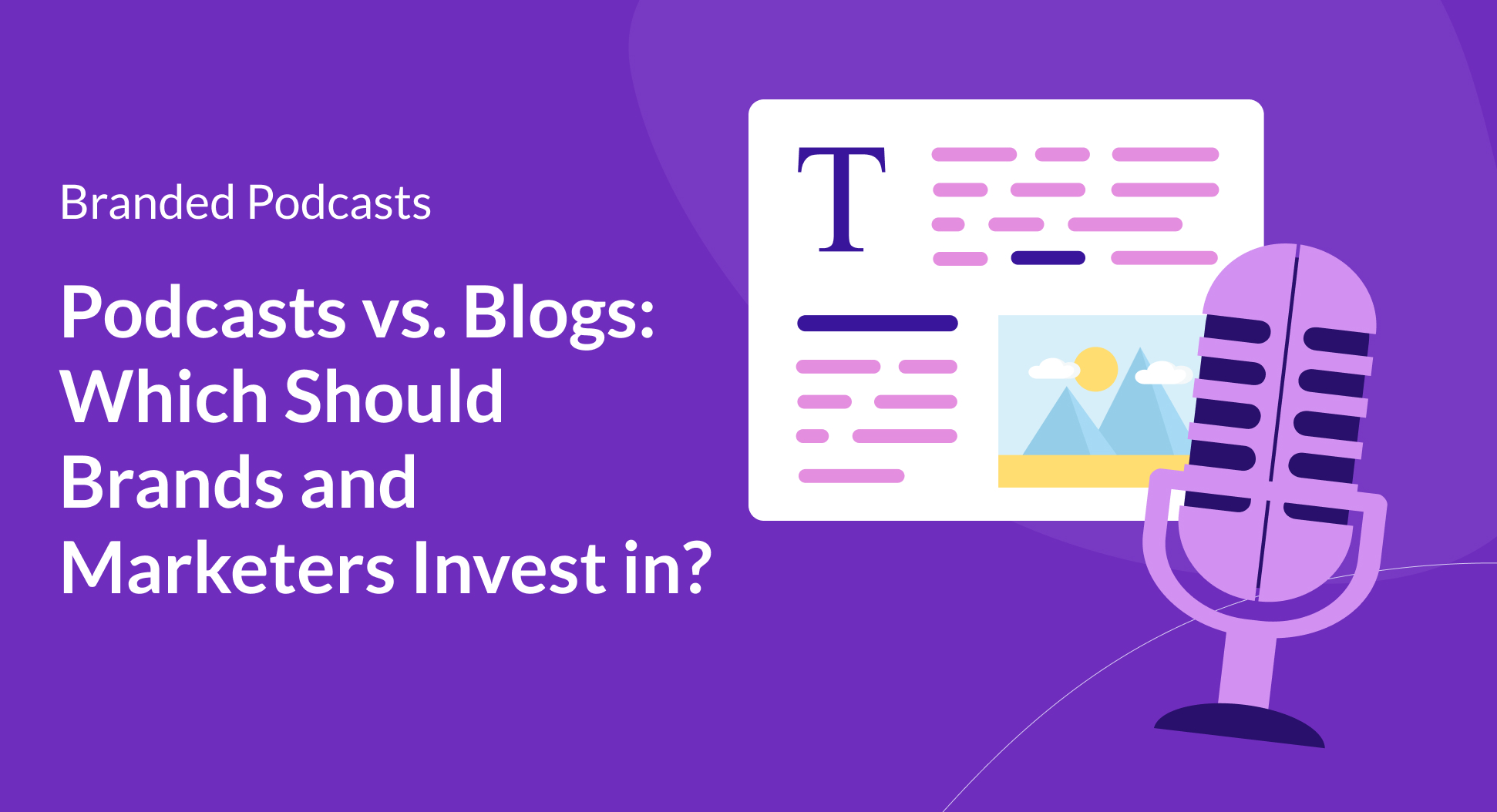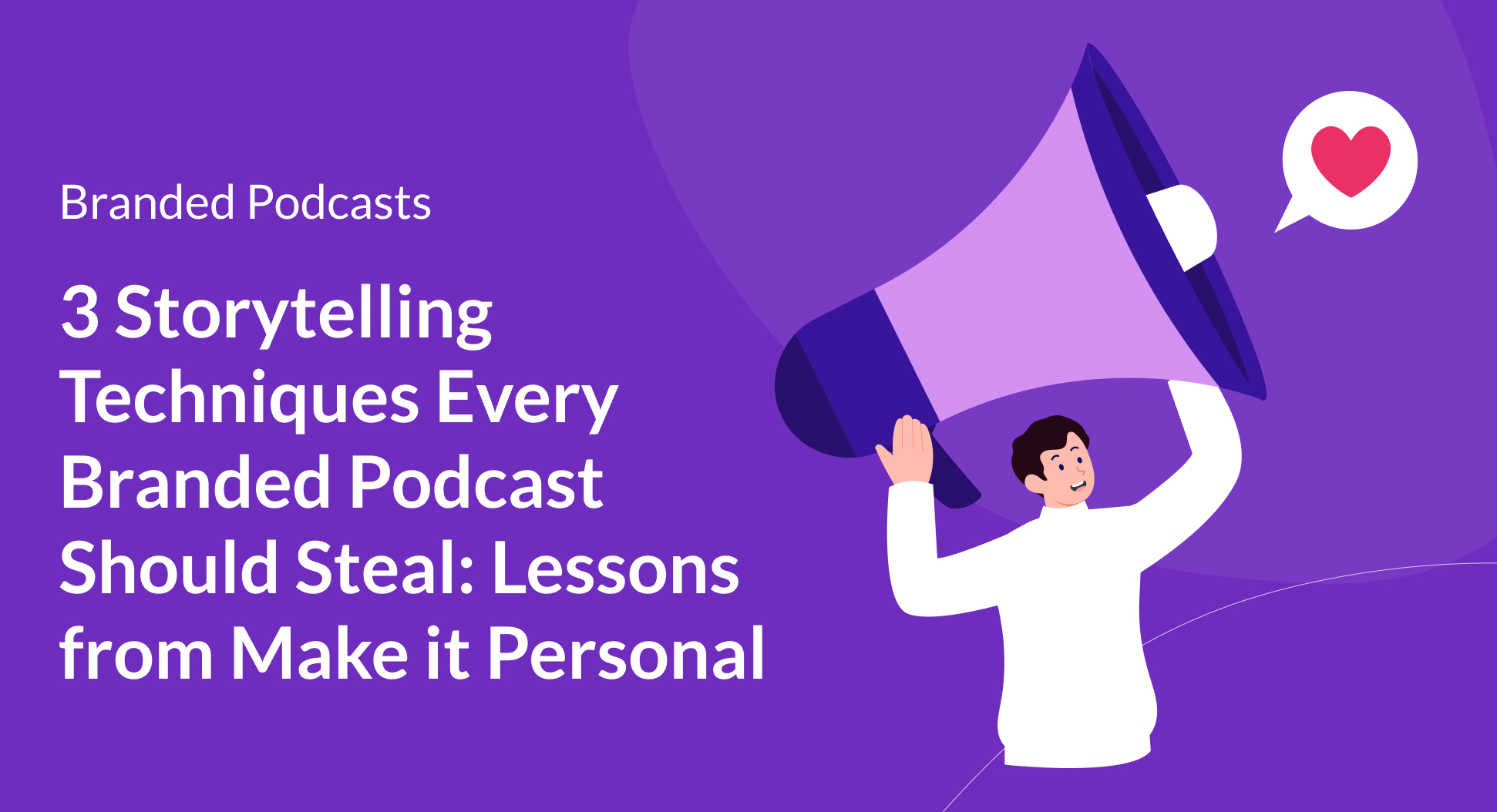Contents
Podcasting is one of the most popular marketing tactics today, and it’s only going to continue gaining traction in the future. That said, podcasts are primarily for education, entertainment and exploring your interests, so podcasters need to maintain a fine balance between using their show for brand advertising while providing value to their audience.
After all, people will only be keen to listen to your podcast if there’s something in it for them, whether that’s a good laugh, an interesting tidbit or a word of advice.
Plus, they’ll be more likely to want to learn more about your brand once you’ve established trust, credibility and a personal relationship with them through excellent content.
There’s a fine art to brand advertising, especially when it comes to advertising your company on a podcast. Since podcasts are a longer form medium, you want to avoid talking up your brand for upwards of 30 minutes… your listeners don’t want that, your brand doesn’t want that, and you don’t want that.
Whether you’re a fledgling startup or a larger corporation, we’ve compiled some of our favorite tips for nailing brand advertising on your podcast:
Create a compelling narrative
If you’re the founder of your brand, try telling the story of how and why you decided to launch the company in the first place, and the problem you identified that you wanted to solve through your product or service. This is a great place to start for your first-ever podcast episode because it will help introduce your brand to your listeners and hook them from the start.
Try to avoid sounding like an investment pitch here—you’ll want to infuse the narrative with as much emotion and real-world experience as possible so people connect with it on a human level. Don’t be afraid to get vulnerable and share stories about the hard times, the challenges and the struggles you’ve encountered along the way as a brand founder. People will appreciate your honesty and there’s a great chance your story will resonate with them personally.
The important thing when advertising your brand on your podcast (or really, when podcasting, period) is to be authentic. Tell your story as if you’re speaking to a trusted friend and expect the best from people. Sure, you might get some haters along the way, but if you can help even one person by sharing your story, it’ll all be worth it in the end.
On the other hand, if you’re producing content for a larger, more established corporation, it may not be possible to feature the founder or CEO on the podcast. In this case, you can absolutely still use the podcast as a platform to continue strengthening your brand narrative and tell inspiring stories associated with the company. Try to think outside the box in terms of guest sourcing and episode themes so you can continue weaving a compelling brand narrative through the show.
Maybe various departments throughout the organization will have dedicated podcasts. It’s not uncommon to see brands that sometimes have upwards of 5-7 shows all under the same core brand umbrella but covering different, niche topics.
Some examples of podcasts that are doing this well include:
- How I Built This by NPR
- Commerce Chefs by pb&j
- Finance in 15 by PwC
Invite company employees to be guests on the podcast and act as indirect brand reps
One way to advertise your brand on your podcast without sounding like you’re tooting your own horn is to ask others to do it for you. Feature special guests on the show like brand reps or people from the leadership team at your company and ask them about their journey with the brand, how it’s changed their life, or what they’ve learned while working with the company. You could also feature someone from the company with special expertise such as the CFO or tech expert.
This will serve to add an interactive element to the show while providing a platform for you and your team to educate people about the brand. Be sure to ask questions unrelated to the brand as well so the episode isn’t too concentrated on your products and services. For example, ask your guest about their background prior to joining the company, or any other experiences they’ve had in the industry that ultimately led them to where they are today.
Some examples of podcasts that are doing this well include:
- C Suite by TD Bank
- Finance in 15 by PwC Canada
Feature customer testimonials on your podcast through storytelling
Similarly, you could ask a trusted and valued customer to join you as a guest on the show to speak to the ways your brand has improved their life. If you’re selling a product or service through your brand, invite customers onto the show so they can share their story of how it helped them, their journey, and why they connected with your brand in the first place.
Again, this will provide you with a platform to discuss your brand without coming off overly sales-y or like one long commercial for your products, a brand advertising dream. Like you would with any other guest, ask the customer about their experiences prior to finding your brand, their life story, career, etc. to add some color to the episode.
Some examples of podcasts that are doing this well include:
- Expanded Podcast
- The Elevator Podcast by Elevate the Globe
Work the brand mention into your show organically
Other than inviting special guests onto the podcast to speak about the brand, if you’re doing a solocast, try to work the brand mention into the show script or episode theme organically. As we’ve already covered, every podcast episode should be providing value to your listeners in some way, so if you’re going to be discussing your brand, it needs to be in a way that gives back to the audience.
For example, if your brand product is a journal, draft an episode theme around “10 reasons why journaling will benefit your mental health.” This will not only serve as an excellent opportunity to promote your brand and product, but it will also likely help your listeners by encouraging them to adopt a healthy mental health habit and start a new positive morning routine backed by science.
Some examples of podcasts that are doing this well include:
- Humans of SaaS by Catalyst Software
- The Field Tripping Podcast by Field Trip Health
The power of association in brand advertising
One powerful tool when it comes to brand advertising through your podcast is associating your brand with subjects that are a layer or two removed from your core offering. Not only will this help you create compelling podcast content that listeners are drawn to, but it will also strengthen your brand narrative by reminding your audience what you stand for and what they can expect from your company.
For example, if your brand offering is in the wellness realm, you could explore health and wellness topics on your podcast without directly zeroing in on your specific brand area. This way, you will continue establishing your brand as an authoritative voice in the wellness space overall rather than pigeonholing yourself.
Some examples of podcasts that are doing this well include:
- Well Said by Indigo
- The Hoame Podcast by Hoame Meditation


.avif)



.png)

.png)




.png)
.png)
.png)
.png)